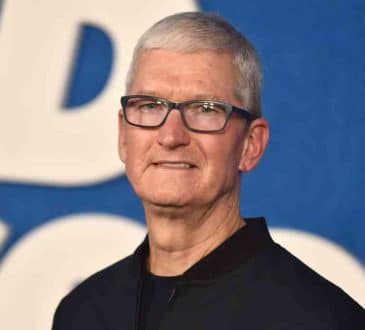Science – a structured method or a sequence of accidents

Science has been a part of human civilization long before the appearance of Christianity. All civilizations across the globe, regardless of whether they could communicate with each other or not, developed methods to explain the physical phenomena that surrounded their lives. The invention of religion was not enough to convince everyone that the God of rain is responsible for the growth of their trees. Some insisted on digging a little deeper. For that reason, they used their minds and followed the road of logical thinking to conclude ideas that would help them improve their lives.
However, it has not always been a matter of hard work and deep understanding. Sometimes luck just comes in people’s way to enlighten their minds. If the famous apple had not fallen on Newton’s head, who knows where physics would be today. And it is not only Newton, history is full of similar examples.
Starting with the example of radiology
Radiography, one of the most important achievements of medicine, was invented by accident. In fact, it was a cold morning of 1895 when Wilhelm Röntgen generally “played” with some rays inside a tube which was covered with black paper, known as the “cathode ray experiment” and noticed that the rays inside the tube created a green light that passed the black paper and left a stamp on a screen. After he got over the first shock he did many experiments to see what was going on. Apparently, he found out that these rays can pass the human skin and leave “shadows” from our bones and muscles on a photographic plate.
If you wonder how these rays got their official name, here is how Wilhem was thinking. After this outbreaking discovery, he realized that these rays were unknown so he decided to call them X-rays. You see, in math, the element we are trying to find or calculate is often given the letter X, in other words, X defines the unknown factor. A Nobel prize is essential in this case! In 1901 he got the Nobel. The first X-ray in the history of mankind is the hand of his wife who helped him with the experiments in his laboratory. In fact, the woman was wearing her engagement ring which one can clearly see in the X-ray.
Take a moment to think about it a little bit, X-rays today are a routine. Not many years ago in order to find out if you have broken something or to find out if there’s something in your body that needs to be removed doctors should just open you up to see what’s going on. Wilhelm was, of course, brilliant but his initial observation that led to experiments was completely accidental.
Antibiotics and their amazing effects
If you think radiography is just an exception let us refresh your memory. Antibiotics are widely used today in modern medicine especially in the western world. Let’s go back again and see how they came to our lives and if they have always been so easy to use because what we today take for granted was not a known fact some years ago. So, in 1928 a bacteriologist called Alexander Fleming made a discovery from an already discarded, contaminated petri dish. To make the long story short it took 10 years until this initial finding would lead to a successful drug.
Luck would be convenient but this is not the case
While there is evidence luck has been on humanity’s side, we have to admit that the people who happened to notice all these interesting events were scientists already. This means they had the knowledge to break into pieces the things they had seen and create a theory. If it was a matter of luck we would be able to explain everything that we have not yet uncovered.
The reason we cannot do that is that we are not scientists, otherwise similar hints would have led everyone to discoveries like these. The fact that the discovery of penicillin did not lead to the creation of the drug immediately proves that science is not a result of luck but actually the product of hard work. After all, what we call luck in this case is just inspiration. Enlightenment comes in several forms and in science, it often knocks on the door kindly.
Have you read?
# Best Citizenship and Residency by Investment Programs.
# Richest People in New York and Their Net Worth, 2022.
# The World’s Top 10 CEOs Over 70 Years Old.
# These are the world’s most and least powerful passports, 2022.
# Case Study: LVMH’s Bernard Arnault, Apple’s Tim Cook, and Elon Musk.
Add CEOWORLD magazine to your Google News feed.
Follow CEOWORLD magazine headlines on: Google News, LinkedIn, Twitter, and Facebook.
This report/news/ranking/statistics has been prepared only for general guidance on matters of interest and does not constitute professional advice. You should not act upon the information contained in this publication without obtaining specific professional advice. No representation or warranty (express or implied) is given as to the accuracy or completeness of the information contained in this publication, and, to the extent permitted by law, CEOWORLD magazine does not accept or assume any liability, responsibility or duty of care for any consequences of you or anyone else acting, or refraining to act, in reliance on the information contained in this publication or for any decision based on it.
Copyright 2024 The CEOWORLD magazine. All rights reserved. This material (and any extract from it) must not be copied, redistributed or placed on any website, without CEOWORLD magazine' prior written consent. For media queries, please contact: info@ceoworld.biz
SUBSCRIBE NEWSLETTER








